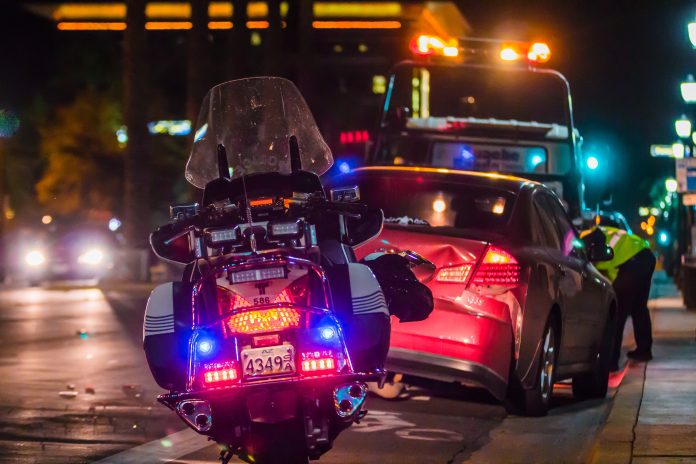There are always risks on the road when you are driving. Even if you are driving safely and obeying traffic laws, accidents can happen. You can’t control the weather, road conditions, and the actions or neglect of other drivers. These factors, along with mechanical failure and other issues with your own vehicle, can cause accidents. Even minor crashes and incidents can cause damage and injuries. When commercial trucks are involved, the results can be severe, even catastrophic. Due to the sheer weight and size of trucks, truck accidents can be life-altering.
When it comes to vehicular accidents, there are financial issues and matters of legality and insurance to consider. This can be especially true if you are in an accident with a truck and the incident occurs in another state. It’s crucial that you understand the steps to follow after an out-of-state truck accident. How you react and respond can affect your health and your finances. As you follow the right steps, you can have peace of mind and get the help you need to recover and move forward.
Stay at the Scene and Call the Authorities
You should never flee the scene of an accident—whether it is your fault or someone else’s. Leaving the scene before the police arrive can result in serious consequences, such as a hit-and-run charge. Most states not only require you to stay but to call the police as well. Even if you see no immediate sign of injuries, you need to alert the authorities.
The police will question all the drivers involved in the crash, as well as any bystanders and witnesses. Be cooperative with the authorities and answer all questions accurately and honestly. Be factual about what happened; do not guess or be accusatory. Provide the officer with your driver’s license and insurance information. Before the officer leaves, make sure to obtain a copy of the report.
Exchange Information With the Truck Driver
Commercial truck drivers have insurance coverage provided by the company for which they drive. Under federal law, truck companies must insure their drivers and trucks with at least $750,000. If you have an accident with a truck, you will want to obtain the insurance information from the driver. Get the contact number and name of trucking company’s insurance provider, as well as the policy number. You should also ask the driver for their commercial driver’s license number. Ask for the person’s name and phone number as well. You will also want to write down a description of the truck and get the license plate number.
In addition, provide your personal details and auto insurance information to the truck driver. As you exchange these items, remain calm and collected. Never admit to fault or place blame on the other driver.
Document the Incident
Though the responding police will file a report, it’s important to record the accident for yourself. This can help when you file a claim with your insurance company as you describe what transpired. The information you document can also be useful if you decide to pursue legal action. After the truck accident, take photos of any damage to your vehicle and the truck. Get pictures of the exterior and interior. You will want to record details of any injuries that you or other people suffered. Document the details of the accident, such as the time of day it happened, where it occurred, and the event that led to the collision. You might even make a diagram of the scene and how the accident took place. If applicable, document the specific road or weather conditions that may have contributed to the accident.
As part of your documentation, you may want to talk to anyone who observed the accident. This could include other motorists who were involved or saw what occurred. Talk to other witnesses, including pedestrians.
Get Medical Attention
If you or others are in serious condition following an out-of-state truck accident, call 911 to inform them of the injuries. You should then let an ambulance take you to the emergency room for treatment. If your injuries are not life-threatening, you should still get to the hospital as soon as possible. Even in cases with minor injuries or none at all, it’s best to let a medical professional examine you. A doctor will diagnose any complications or unapparent injuries. For all your visits to the hospital, urgent care, or your doctor’s office, keep track of any out-of-pocket medical payments you have made.
In an out-of-state truck accident, your health insurance company may not pay for any care you receive. However, the personal injury protection with your auto insurance company should be able to help with expenses.
File a Claim With Your Insurance
As soon as you can after your accident, contact your auto insurance provider. The faster you do this, the faster your agent can process your claim. You may be able to provide basic information online or using your auto insurance company app. However, a company representative will likely want to ask follow-up questions and get more detailed information. When you file a claim, give as much detail as you can.
Speak With an Attorney
The legal issues in any auto accident can be complicated, but they are especially complex with out-of-state truck accidents. You will need an attorney on your side to review your case. An auto accident attorney can also help you determine whether it makes sense to seek damages and file a lawsuit. If the truck driver is at fault, you may be entitled to compensation for your injuries and any lost income you have or will have because of the accident.
In the event of an out-of-state truck accident, you need to be wise about how you act. Taking these steps will help you avoid troubles and get you the help you need in the aftermath of a difficult situation.







